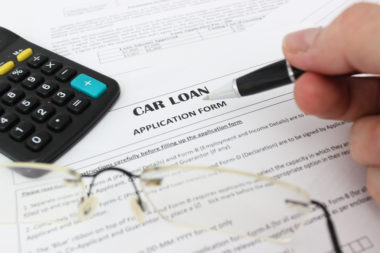If you’re in the market for an auto loan, finding the best rate can seem like a difficult task. When you take the time to visit different resources and compare auto loan rates, you may find that pricing is inconsistent. If you live in an area without several lender options, you could face a higher annual percentage rate (APR) and undesirable loan terms, simply because there isn’t competition.
It’s important to understand how to successfully shop for auto loans and what to look for when comparing different options. When you take the time to thoroughly compare these offers, you can confidently choose the best auto loan for your situation. Use this guide to learn about the auto loan shopping process and what to look for in a loan.
Table of Contents
Comparing Auto Loan Lenders
Depending on where you live and your credit score, you may have several auto loan options. It’s important to consult with each of these lenders to find out about the specific terms they’re willing to offer you.
Credit Unions
Credit unions operate similar to banks but they’re actually nonprofit organizations that are owned by their members. In some cases, a credit union may only offer an auto loan to its members. However, some organizations offer loans to the general public, even if you don’t have an account with them. When looking into a credit union car loan, you may encounter different types of organizations, including the following:
- Community credit unions;
- Military credit unions;
- Educational credit unions;
- Government credit unions.
A credit union may be a good place to start because they generally offer interest rates lower than banks and a personalized car loan application process. According to S&P Global Market Intelligence, the national average interest rate for a 60-month new car loan in 2019 with a credit union was 3.7%.
Banks
You can visit a bank directly to learn about auto loan offers. Most banks only lend to borrowers with good credit but every institution has its own qualifications for auto loans.
If you already have accounts with a specific bank, you may find better rates from that institution since you have an existing relationship. According to S&P Global Market Intelligence, the national average interest rate for a car loan administered by a bank in 2019 was 5.15%.
Consider visiting a local branch in person when applying for a car loan with a bank. You’ll receive personalized service and the representative can explain loan terms and different options. If you choose a national bank, it may offer easy online loan payment options or other perks. Be aware of penalty fees for late or missed payments.
Car Dealerships
It’s simple and convenient to finance your car through the dealership since you’re already there shopping for a vehicle. Dealerships may be able to shop the loan around for you through several options, which may include:
- Dealer-arranged financing: Dealers have relationships with several lending institutions and banks. The dealer acts as a liaison and connects you with these banks to find the best loan option.
- Captive finance companies: Large car manufacturers, such as Toyota or GM, have their own finance companies. A dealer may offer you a loan directly through the manufacturer.
- “No credit check” financing: If you don’t have good credit when applying for a car loan, some dealerships offer financing without a credit check. These options usually include high interest rates and fees, so review the loan terms carefully.
With good credit, dealership financing may be helpful because you can compare offers from different sources. However, if you don’t have good credit, a dealership may not be able to provide you with a loan that fits your budget.
Online Loan Providers
Online lenders make it easy to shop around for your auto loan at home. However, it’s important to be cautious about who you’re providing your personal information to online. Be sure the online lender is legitimate and trustworthy before giving out your financial information or Social Security number.
If you have good credit, an online loan provider may offer better interest rates than a bank. However, with poor credit, online lenders may offer unsatisfactory loan terms and extremely high interest rates.
Tips When Comparing Car Financing Options
Calculate the Total Cost of the Loan
You can calculate your total loan cost with the following formula:
Total Loan Cost = r x p / 1 – (1+r)^n (n).
- R = Monthly interest rate.
- P = Principal loan amount.
- N = Total number of months on the loan.
For example, if you have a five-year loan for $25,000 with an interest rate of 6.5%, your total loan cost is $29,349.22.
Determine Your Repayment Options
If you pay your loan off early, you can avoid paying interest. However, some lenders may impose early repayment penalty fees if you pay off your balance before the loan term is over. Review your terms to figure out if it’s beneficial for you to pay off your loan.
Check for Complaints With the Better Business Bureau
The Better Business Bureau (BBB) provides information on lenders and their ratings. By reviewing a lender’s profile on the BBB, you can better understand if their loan practices are fair by reading through past client reviews and ratings.
Special Considerations When Refinancing
Understand Auto Refinancing Costs
If you have unsatisfactory loan terms, you may want to refinance your auto loan. However, it’s important to understand the fees involved in the process. Be sure you’re not subject to an early loan repayment fee and analyze your new loan terms to ensure the interest rate and monthly payment are better than your original loan.
The Pros and Cons of a New Loan
Before refinancing your car loan with a new lender, consider the pros and cons.
Pros:
- Potentially better interest rate.
- Lower monthly payment.
- More satisfactory loan terms.
Cons:
- Penalty fees for paying off your loan early.
- An older vehicle may not qualify for better terms.
- Can make bad credit worse.
Your credit score directly affects the auto loan you qualify for. Shop around for the best loan terms and consider adding a cosigner to your auto loan if you’re having trouble qualifying. Before you agree to loan terms, be sure you understand your financial responsibility and any fees that may apply to your situation.
Image Source: https://depositphotos.com/





